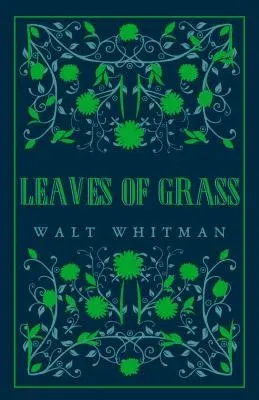Walt Whitman
(Author)Leaves of GrassPaperback, 23 July 2019

Qty
1
Turbo
Ships in 2 - 3 days
Only 2 left
Free Delivery
Cash on Delivery
15 Days
Free Returns
Secure Checkout

Print Length
576 pages
Language
English
Publisher
Alma Books
Date Published
23 Jul 2019
ISBN-10
1847497551
ISBN-13
9781847497550
Description
Product Details
Author:
Book Format:
Paperback
Country of Origin:
US
Date Published:
23 July 2019
Dimensions:
19.56 x
12.7 x
3.81 cm
ISBN-10:
1847497551
ISBN-13:
9781847497550
Language:
English
Location:
New York
Pages:
576
Publisher:
Weight:
453.59 gm